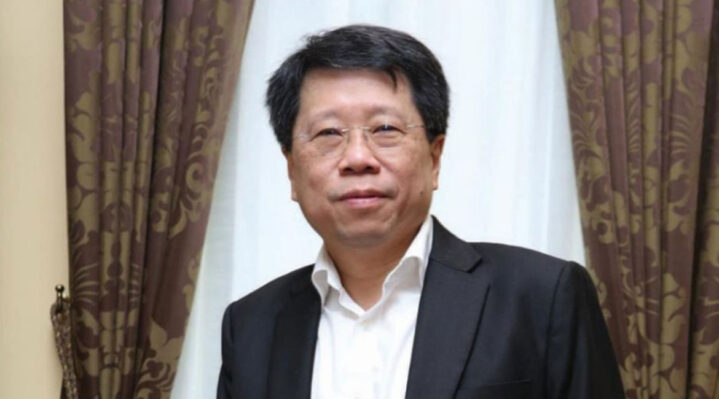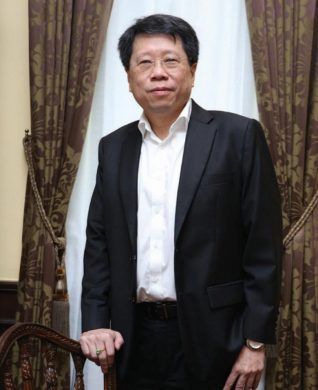
MoE Ushers in New Era of Thai Education with Introduction of Quality Assurance Initiative
Educational reform is one of the country’s most important national issues, one whose solution is continually thwarted by a number of intractable problems. Controversy has erupted over competing educational mechanisms over the past few decades, along with question and social pressure from society about a quality standard, plus the realisation the the future of Thai youth is the catalyst for history-making changes in Thai education.
This includes the repeal of the ministerial regulation Prescribing the System, Criteria and Methods for the Internal Quality Assurance for Formal Educational Establishment B.E. 2553, and the introduction of a new ministerial regulation, Quality Assurance for Education B.E. 2561. The changes are aimed at boosting the efficiency of the country’s educational system and bringing it in line with international standards.
The Ministerial Regulation on Education Quality Assurance B.E. 2561 is now in effect for over 45,000 schools nationwide.
Education Minister Teerakiat Jareonsettasin explained the significance of this policy transition: “During the past decades, quality assurance was done in the form of external assessments. The system of inspecting and scoring education quality standards using some 500 criteria has been in place for decades, but this top-down method adversely affects the efficiency of educational mechanisms at all levels, both internally and externally. In addition, it has placed the burden of conducting the assessments onto teachers and other educational personnel. It was found that, even at schools receiving the highest scores, favourable evaluations did not reflect the actual level of teaching quality, resulting in a massive waste of budget resources spent on inspections and assessments.
The ultimate benefit of this innovative initiative is that it will provide equality of education for all Thai youth, and establish a sustainable foundation for the country’s overall education development plan going forward.
“In my opinion, it is time for a change if we want to see a brighter future of Thai education. The top-down assessment system that causes problems and controversy has to be replaced with a self-assessment system, which will allow each school to evaluate their capacity and performance based on quality codes and criteria of the educational institute. Instead of performing as assessment based on more than 500 criteria, the new quality assessment system requires only a single comprehensive report which answers just three questions. This saves time and money, and streamlines the entire procedure.”
The innovative self-assessment is based on a common template for all levels of educational institutions, and will be conducted by the head of each institution who will then issue a report covering three main areas:
1. Classification: Heads of educational institutions must rate their capacity based on five levels of quality and performance in compliance with general standards, including poor, fair, good, great, and excellent. Each level of capacity is based on the existing international standards applicable to educational institutions of varying types and levels.
2. Verification: heads of educational institutes must show proofs or others indications that support their self-classification. This criteria focuses on the efficiency of education management, educational infrastructure and technology that facilitates learning and teaching development, including a proper ratio of teachers and students, accessible library, students retention rate, student attendance rate, and leadership, among others.
3. Concrete development plan: Heads of educational institutions must create a development plan specifying measures for raising the level of quality and performance to a higher classification standard . Minister Teerakiat continued: “Self-assessment allows two-way communication between internal and external mechanism that will lead to more integrated operations and mutual understanding between all parties concerned.”
Sceptics may argue self-assessment can lead to exaggerated or overestimated evaluations. This will not happen as long as we strictly comply with international standards and avoid the subjectivity of previous inspection system. The central agency will take part in reviewing the reports to ascertain whether the self-assessment matches the actual standards. Moreover, the international standards can be applied to all categories and levels of educational institutions, with results reflecting actual inputs assessed based on a common benchmark.”

This innovative education quality assurance platform requires close cooperation between the three principal agencies involved. The Office for National Education Standards and Quality Assessment (ONESQA), which will assume a regulatory role that includes revising self-assessment reports and finalising the results.” The commissions of three educational agencies-including the Office of the Basic Education Commission (OBEC), the Office of the Higher Education Commission (OHEC), and the Office of Vocational Education Commission-will take part in establishing quality codes, criteria, and guidelines for each educational system, and will conduct preparatory workshops and mock assessment to foster understanding about self-assessment procedures among educational personnel. Individual schools, universities, and vocational colleges will become operations that conduct self-assessments and implement recommended quality assurance guidelines.
Annual self-assessment reports will be mandatory in order to encourage pro-active participation and consistent development. Outputs from the self-assessments will help central agencies to more efficiently and equitably allocate budgetary resources to schools with the most need. Additionally, an appeals system will be put in place to allow assessors to revise previously submitted results, thus fostering transparency and equality for all educational institutions.
“Self-assessment is proven to be one of the most effective ways to benchmark educational standard, and is backed by extensive research and statistical evaluation by McKinsey and Company, a trusted advisor and counsellor to many of the world’s leading businesses and institutions.”
‘I believe that this big change will help raise the country’s educational standards to the international level. The ultimate benefit of this innovative initiative is that it will provide equality of education for all Thai youth, and establish a sustainable foundation for the country’s overall education development plan going forward,” concluded Minister Teerakiat.
ww.moe.go.th



